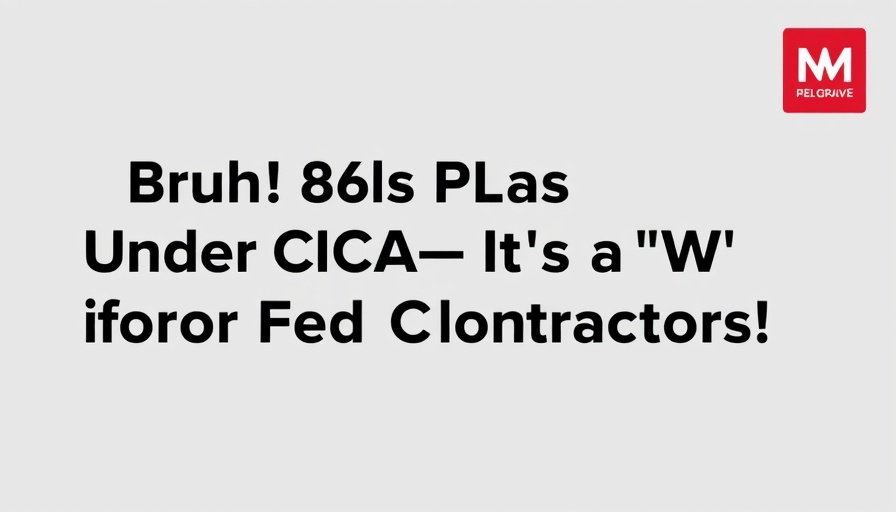
A Landmark Legal Decision Impacting Federal Construction
In a pivotal ruling that echoes the long-standing debate surrounding Project Labor Agreements (PLAs) in federal construction, the United States Court of Federal Claims recently delivered a significant blow to the Biden Administration's directive mandating PLAs on large-scale federal projects. The January 21, 2025 ruling in the case of MVL USA, Inc. et al. v. United States determined that this mandate infringed upon the principles of full and open competition as mandated by the Competition in Contracting Act (CICA).
Understanding Project Labor Agreements
PLAs serve as pre-hire collective bargaining agreements that outline the terms and conditions of employment for all workers on a specific construction project. While proponents argue that PLAs can streamline project timelines and establish a harmonious workforce, critics highlight that they often impose unnecessary requirements, leading to inflated costs and reduced contractor participation.
Historically, the application of PLAs has fluctuated due to shifts in presidential administrations, with policies swinging from outright prohibition to enthusiastic endorsement. The Biden administration's Executive Order 14063, implemented in early 2022, required PLAs on all federal projects exceeding $35 million, a pivot that may now produce unintended consequences.
A Coalition's Challenge Against Mandates
Citing concerns over diminished competition and cost increases, a coalition of twelve major construction firms took legal action against the PLA mandate. They contended that despite clear market research indicating detrimental impacts from mandatory PLAs, agencies were still instructed to impose the requirements irrespective of evidence. For instance, one case cited showed that initial market findings indicated a PLA would reduce contractor interest due to a local skilled labor shortage, yet the agency enforced the requirement anyway, highlighting a disconnect between policy enforcement and actual market needs.
The Court’s Judgment: A Resounding Victory for Contractors
Judge Holte's ruling underscored the necessity for federal agencies to embrace full and open competition in accordance with CICA. The decision indicated that policies should reflect market realities and emphasized that agencies must substantively justify any limitations on competitive bidding, securing a favorable outcome for contractors seeking to operate under equitable terms.
In light of this ruling, it is evident that a presidential policy cannot supersede established procurement law without clear statutory backing. The negotiation of contracts can no longer be swayed by broad political judgments alone, which reinforces the fundamental values of competition and fairness that are integral to federal contracting.
Implications and Future Outlook for Federal Contracting
This landmark decision promises profound implications for federal contracting practices moving forward. By reaffirming the legal foundations of competition, it may pave the way for increased contractor participation in federal projects, promoting diverse bidding strategies and potentially resulting in optimized project costs.
The future of PLAs remains uncertain, and how federal agencies will respond to this ruling could shape the landscape of construction regulation significantly. The importance of market research will likely become even more pronounced, serving as a guiding principle for agencies as they navigate upcoming projects.
A Final Thought on Construction Policy
For contractors and industry stakeholders, understanding the nuances of this recent judgment is essential. As federal contracting continues to evolve, staying abreast of such changes will empower construction firms, allowing them to engage in a competitive marketplace with enhanced clarity on regulatory frameworks.
 Add Row
Add Row  Add
Add 




 Add Row
Add Row  Add
Add 

Write A Comment